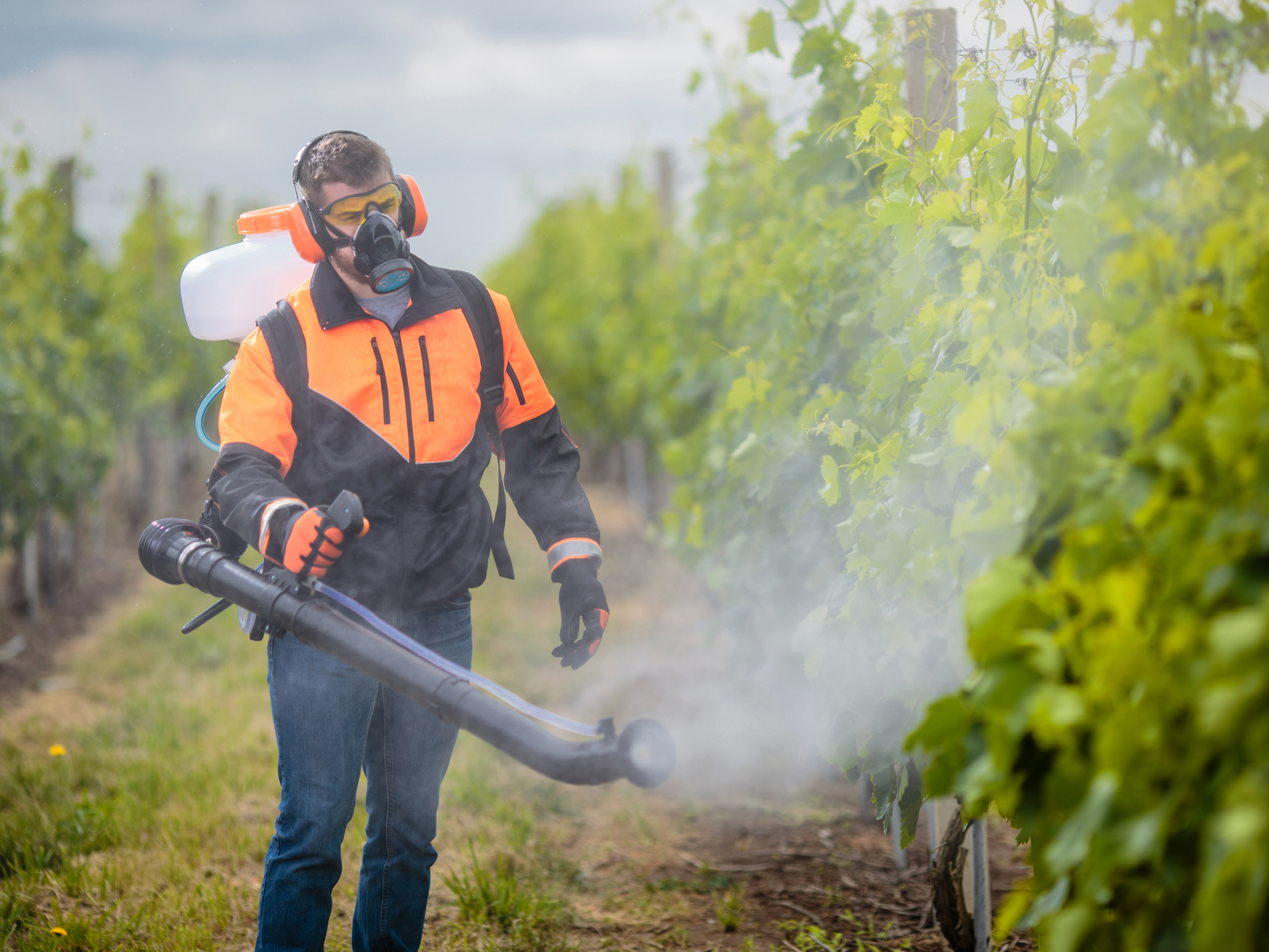Get Easy Health Digest™ in your inbox and don’t miss a thing when you subscribe today. Plus, get the free bonus report, Mother Nature’s Tips, Tricks and Remedies for Cholesterol, Blood Pressure & Blood Sugar as my way of saying welcome to the community!
Job exposure to pesticides raises heart disease risk 45%

Every job has its good sides and bad sides…
Maybe you have a short commute, but you work a lot of overtime. Maybe you work at home a few days per week, but your company’s health insurance isn’t great. Maybe you work outside, which is awesome when it’s 70 degrees and sunny. But not so awesome when it’s 17 degrees and icy.
The fact is, we all make sacrifices to pay our bills. But there’s no denying that some downsides are worse than others. There’s one in particular that I wouldn’t put up with (although I know several people who do)…
High exposure to pesticides.
Agricultural workers. Arborists. Golf course attendants. Greenhouse assistants. Landscapers. Janitors. People in any one of these positions could be exposed to an unusually high amount of pesticides. And those are just a few examples.
Unfortunately, this particular job requirement can increase the risk of Parkinson’s, cancer, reproductive problems, and liver damage. But that’s not all…
A new study shows it has one more scary side effect — it causes your cardiovascular system to crash and burn.
Men who use pesticides at work have a much higher heart disease risk
Researchers from the University of Hawaii at Manoa just revealed that on-the-job pesticide exposure puts men at a disturbingly high risk for heart attack and stroke.
The study included data from 8,000 Japanese American men from the Hawaiian island of Oahu. Researchers tracked their exposure to pesticides and health for up to 34 years. And guess what?
Men who were exposed to a lot of pesticides at work had a 45 percent higher risk of heart disease or stroke. That’s a high risk!
Luckily, the risk of pesticide exposure fades with time. By the time the 34-year study period was over, the risk had leveled out. But those first 10 years are a doozy.
Why do pesticides affect the cardiovascular system anyway?
Researchers don’t know for sure. But it may have something to do with hormones. In fact, previous studies show something odd about pesticides’ effect on the cardiovascular system…
Some pesticides give women heart attacks and not men, while others give men heart disease and not women. Strange, huh? It definitely sounds like hormones could be at play here.
Protect your heart from pesticides
There’s one super obvious way to protect yourself from pesticides: find a job that doesn’t expose you to them. But I know that’s easier said than done. You’ve got bills to pay.
If you can’t make a career change, take other precautions. Always wear Personal Protective Equipment (PPE) when you’re using pesticides. That includes things like a protective suit, gloves, goggles, a hat, and even a respirator.
You should also be careful with any clothes you wear while spraying pesticides. Take them off immediately and wash them. Take a shower too.
There are ways to help your body bounce back from pesticide exposure that you may want to try as well…
Eating an organic diet filled with lots of green vegetables and water is a great way to help your body process pesticides more efficiently. Easy Health Options contributor and integrative medical doctor Dr. Isaac Eliaz also recommends 10 herbs and nutrients that can help your body filter toxins like pesticides better:
- Milk thistle seed extract
- Dandelion leaf
- Cilantro leaf
- Astragalus root
- Goldenrod
- Chinese salvia
- N-Acetyl Cysteine (NAC)
- Alpha Lipoic Acid
- L-Methionine
- Calcium D-glucarate
Now, you don’t need to take all of these. Just find a few that work for you. Or if you’re really serious about clearing pesticides out of your system, talk to an integrative doctor who can help you pick the right herbs and develop a diet plan that’ll do the trick safely and efficiently.
Editor’s note: Have you heard of EDTA chelation therapy? It was developed originally to remove lead and other contaminants, including heavy metals, from the body. Its uses now run the gamut from varicose veins to circulation. Click here to discover Chelation: Natural Miracle for Protecting Your Heart and Enhancing Your Health!
Sources:
- Pesticide exposure may increase heart disease and stroke risk — MedicalXpress
- Association Between Occupational Exposure to Pesticides and Cardiovascular Disease Incidence: The Kuakini Honolulu Heart Program — Journal of the American Heart Association
- Minimizing Exposure at Work — National Pesticide Information Center
- Personal Protective Equipment for Pesticide Applicators — Montana State University
- Pesticides and human health — Californians for Pesticide Reform
- 10 natural ways to battle toxin exposure — Easy Health Options













